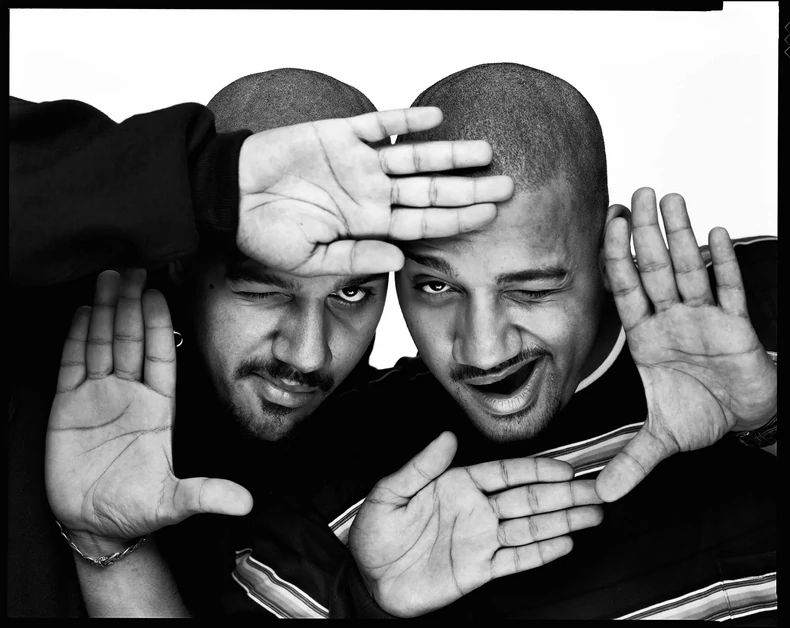The Hughes brothers are highly influential filmmakers often overlooked by even the most dedicated movie enthusiasts. Despite flying under the radar, their films like “Menace II Society” in 1993 and “Book of Eli” in 2010, have left a lasting impact on cinematography, solidifying the Hughes brothers as distinctive and visionary auteurs in their own right. But the path to their success was not always smooth, and their rise to fame was a journey worth telling.
The story of Allen and Albert Hughes began in Detroit, Michigan, on April 1, 1972. Born to a mix of African American and Armenian American heritage, the brothers moved with their mother, Aida, to Claremont, California, after their parents’ divorce when they were just toddlers. Raised by their mother, who ran her own business and encouraged their interest in filmmaking, the brothers received a video camera at the age of twelve that sparked their passion for creating short films.
As they grew older, the brothers delved into directing music videos for artists like Tupac Shakur and Tone Loc, refining their skills in the industry. This experience culminated in their breakthrough film, “Menace II Society,” released in 1993. The movie, set in the Watts/Crenshaw district of the 1990s, was a critical and commercial success despite its modest $3.5 million budget. It garnered acclaim and even earned a nomination for an Independent Spirit Award.
However, not without its share of controversies, the Hughes brothers found themselves in a legal battle with Tupac Shakur after an altercation during a music video shoot. Despite the turmoil, the film’s gritty realism propelled the brothers into the limelight, establishing them as a talented duo in the filmmaking world.
Subsequent projects such as “Dead Presidents” in 1995 and the documentary “American Pimp” in 1999 further showcased the brothers’ ability to tackle diverse and compelling narratives. These films highlighted the Hughes brothers’ distinctive style characterized by intense storytelling, raw emotion, and unflinching portrayals of society’s darker aspects.
The movie faced criticism for potentially glamorizing a difficult profession, but the Hughes brothers ensured to also depict the harsh realities of the oldest profession in the world. Following that, they worked on anti-handgun campaigns and declined offers for anti-marijuana ads.
In 2001, they released “From Hell,” a film adaptation of Alan Moore’s graphic novel about the Jack the Ripper murders in Victorian England. This movie showcased a departure from their usual style, containing intense violence that had to be toned down to avoid an NC-17 rating.
“From Hell” marked a divergence in the brothers’ collaboration, with disagreements arising over the portrayal of violence in the film. Despite this, the movie achieved moderate success. Afterward, the Hughes brothers pursued individual projects, with Allen directing parts of “New York, I Love You” and “Broken City,” while Albert achieved success with his solo feature film “Alpha” in 2018.

One of their notable works included “Book of Eli” in 2010, which starred Denzel Washington as a blind warrior in a post-apocalyptic setting. Although initially receiving mixed reviews, the film resonated with audiences for its message. Their films, including this one, highlighted their storytelling prowess in addressing complex themes with social commentary.
The Hughes brothers may not be familiar to all movie enthusiasts, but their impactful storytelling and moral exploration have positioned them as significant figures in the film industry. Their enduring legacy is a testament to their uncompromising approach to storytelling, setting them apart as cinematic giants.




